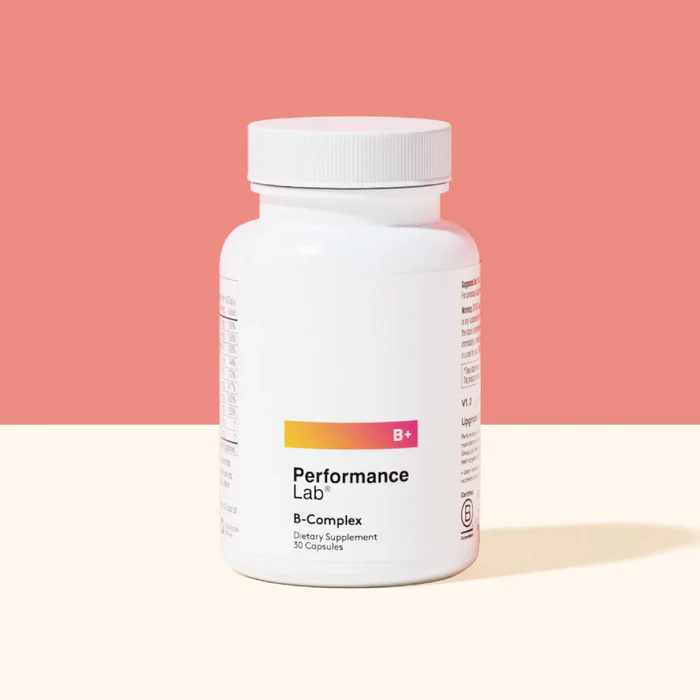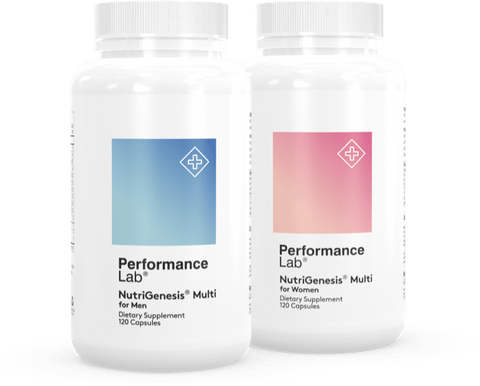Healthy, thick, luxurious hair is a dream for all of us—but with the combination of hair products that cause damage, excessive washing, and poor diets, healthy and strong hair is hard to achieve.
But could B12 turn that around? Some studies suggest that adding B12 to your diet could reduce hair loss, encourage growth, and improve your hair’s look and feel.
Raise your hand if you’re struggling with dry, damaged hair. For many people, thick and healthy hair is a dream—but it’s hard to achieve.
Aside from shine-boosting and volumizing hair products, vitamin and mineral supplements can help naturally promote hair growth and reduce hair loss.
You may have heard about vitamin B12 and its secret properties for promoting healthy and beautiful hair.
So, we’re taking a deep dive into the role of vitamin B12 and helping you understand how it may improve hair health from the inside out.
Key Takeaways
- Healthy hair growth depends on a steady supply of oxygen, nutrients, and structural proteins delivered to hair follicles through the bloodstream.
- Vitamin B12 supports red blood cell production and oxygen transport, so deficiencies can contribute to thinning, shedding, and dull, brittle hair in some people.
- Research suggests low B12 may be one of several factors behind hair loss, along with genetics, hormones, stress, and other nutrient gaps.
- Ensuring adequate B12 intake—especially for vegans, vegetarians, and older adults—supports overall health and may help create better conditions for strong, resilient hair.

What is Vitamin B12?
Most people have heard about B12 and how getting enough is important, but few know what B12 is and what it does.
As you likely guessed, vitamin B12, also known as cobalamin, is one of the eight B vitamins essential for many physiological processes in the body, including energy metabolism, brain function, nervous system function, bone health, and immune function.
As an essential vitamin, it cannot be produced in the body and must come from diet or supplementation. For people on a vegan or vegetarian diet, getting enough B12 can be tricky, as food sources are mostly animal products.
But unlike the other B vitamins that are water-soluble and readily absorbed, B12 undergoes a different process.
Dietary B12 is protein bound and must be released before it can be absorbed—hydrochloric acid (stomach acid) cleaves B12 into its free form, which is then bound to a protein called intrinsic factor (IF) before being absorbed ; IF is produced by parietal cells of the stomach and is necessary to facilitate the absorption of B12 in the terminal portion of the ileum .
A deficiency of either stomach acid or IF can lead to a B12 deficiency and are two reasons vitamin B12 deficiency is more prevalent in older populations.
Signs and Symptoms Of A B12 Deficiency
You need sufficient levels of stomach acid and intrinsic factor for your body to efficiently and effectively absorb dietary vitamin B12. Low levels of either can lead to low serum B12 levels and put you at risk for deficiency.
Because the body can store about 1-5 mg of B12 and only small amounts are lost through sweat, urine, and feces daily, a deficiency that develops from inadequate dietary intake of absorption can therefore take months to years to develop .
But when it does, the consequences can be severe, and the symptoms you experience will vary depending on the severity and duration of the deficiency. Some of the most common symptoms include :
- Anemia
- Chronic fatigue
- Shortness of breath
- Heart palpitations
- Pallor
- Skin hyperpigmentation
- Glossitis
- Infertility
- Osteoporosis
- Sensory loss
- Abnormal balance or reflexes
- Cognitive impairment
- Memory loss
But have you ever heard of hair, skin, and nail issues from vitamin B12 deficiency? Although not as common as a deficiency of other vital nutrients, they can happen, thanks to B12’s involvement in the hematological and nervous systems .
Research shows that vitamin B12 deficiency can cause cutaneous manifestations, including hyperpigmentation (most common), hair and nail changes, and oral changes, including glossitis.
Other dermatologic conditions like vitiligo, aphthous stomatitis, atopic dermatitis, and acne also have links to a B12 deficiency or excess.
Does B12 Deficiency Cause Hair Loss?
The relationship between B12 and hair loss isn’t concrete or wholly understood, but research suggests that because of the role of folate (B9) and vitamin B12 in nucleic acid production, they may be involved in the highly proliferative hair follicle.
However, few studies support the link between low B12 and folate and hair loss. Biotin appears to be the only B vitamin with links to hair.
That said, some experts speculate that the role of B12 in producing healthy red blood cells could support nourishing hair follicles and promoting hair growth.
Vitamin B12 Benefits For Hair
Research on vitamin B12 and hair health is limited. Still, some connections may be plausible due to its role in red blood cell production, which directly contributes to oxygen and nutrient delivery to tissues.
1. May prevent hair loss
If you’re struggling with hair growth, increasing nutrient and oxygen delivery to the scalp may help promote hair growth and prevent hair loss. Ischemia, a condition whereby organs or tissues aren’t receiving enough blood, is a common condition linked to alopecia.
Studies find that skin ischemia leads to reduced hair growth rate, hair shaft size, and pigmentation in the anagen phase of growth in rodents, which may be a part of the pathophysiology of hair loss and depigmentation (gray/white hairs) .
A 2020 study published in Organogenesis looked at the changes in hair follicles induced by ischemia and the potential benefits of normobaric hyperoxygenation (NBO) on the hair cycle and growth .
Researchers found that hyperoxygenation treatments increased hair fiber growth during the anagen phase of hair growth and delayed the onset of the catagen phase—the phase where hair follicles shrink, and hair growth slows.
These findings suggest that ischemia resulting from reduced skin oxygen and nutrient supply could contribute to impaired hair growth and hair loss.
But how does this relate to vitamin B12? Thanks to its role in red blood cell production and oxygenation of tissues, increasing levels of B12 may improve the efficiency of RBCs and enhance oxygen and nutrient delivery, promoting healthier hair follicles and better growth.
2. Encourages hair growth
As we just mentioned, a lack of oxygen and nutrient supply to hair follicles can leave the scalp undernourished and weak.
A lack of oxygen can lead to premature hair thinning and hair loss, so adding more B12 to your diet to enhance RBC production and your body’s oxygen-carrying capacity could improve hair growth and scalp health.
3. Strengthens hair
Brittle hair can be the result of several nutrient deficiencies, but apart from vitamin B12, there’s another nutrient that plays an important role: iron. Iron is needed for your body to produce hemoglobin—the primary oxygen-carrying molecule in the body .
Roughly 98% of total oxygen transported in the blood is bound to hemoglobin, while the other 2% is dissolved directly in plasma.
But B12 is also required to activate succinyl CoA, a chemical needed to make heme . Insufficient iron intake and/or B12 can compromise hemoglobin production and oxygen and nutrient delivery to hair follicles.
When your body doesn’t have enough iron, you can’t produce hemoglobin to transport oxygen, which supplies hair follicles with oxygen and nutrients for hair growth and repair. Vitamin B12 or folate deficiency can also impair hemoglobin synthesis, which, in turn, impairs the health of hair follicles.
Final Thoughts
Vitamin B12 may not be the be-all for hair growth, but several nutrients can help you achieve thick, luscious, and healthy hair.
The B vitamins, vitamin C, and the fat-soluble vitamins A, E, and K all promote healthy hair, as do minerals zinc, iron, copper, selenium, and essential fatty acids.
So, while you may not be able to supplement with one specific nutrient, taking the lot might get you your dream hair—and you can do it with Performance Lab NutriGenesis Multi.

References
- Schjønsby H. Vitamin B12 absorption and malabsorption. Gut. 1989;30(12):1686-1691.
- Oh R, Brown DL. Vitamin B12 deficiency. Am Fam Physician. 2003;67(5):979-986.
- Hunt A, Harrington D, Robinson S. Vitamin B12 deficiency. 2014;349:g5226.
- Brescoll J, Daveluy S. A review of vitamin B12 in dermatology. Am J Clin Dermatol. 2015;16(1):27-33.
- Kato H, Kinoshita K, Saito N, et al. The Effects of Ischemia and Hyperoxygenation on Hair Growth and Cycle. 2020;16(3):83-94.
- Rhodes CE, Denault D, Varacallo M. Physiology, Oxygen Transport. . In: StatPearls . Treasure Island (FL): StatPearls Publishing; 2022 Jan-. Available from: https://www.ncbi.nlm.nih.gov/books/NBK538336/
- Froese DS, Fowler B, Baumgartner MR. Vitamin B12 , folate, and the methionine remethylation cycle-biochemistry, pathways, and regulation. J Inherit Metab Dis. 2019;42(4):673-685.
















